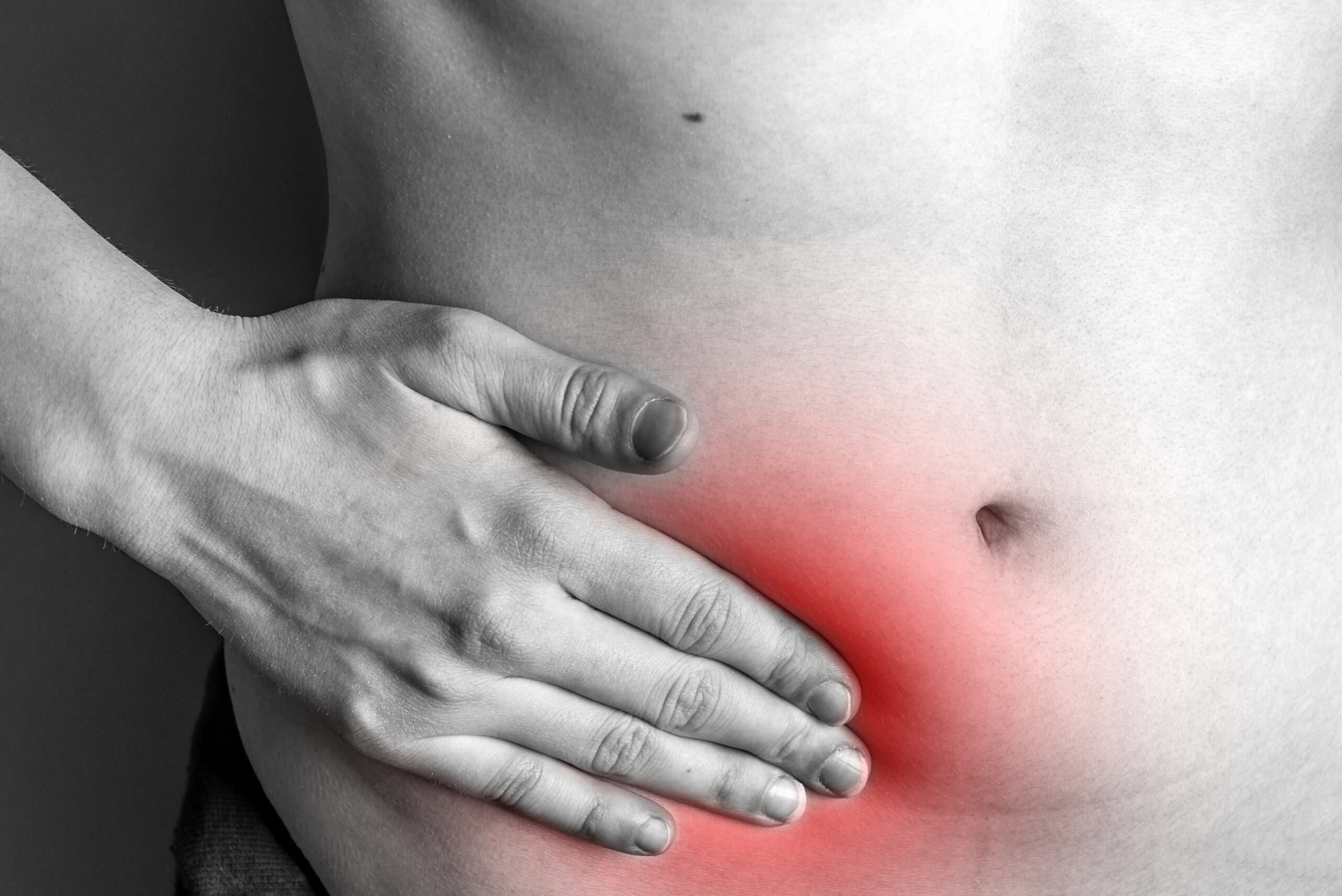


When a person’s abdominal muscles weaken or a defect is created, any protrusion in the abdomen is called a hernia. In common parlance, it’s also known as ‘swelling.’ This bulge disappears when lying down. In comparison to women, this problem is found 20 times more in men. In hernia, the weakening of abdominal muscles causes intestines or some content to come out from the inside, which goes back when lying down. Often, during coughing, standing, walking, or performing other activities, there’s discomfort due to hernia, and lying down provides relief. About 80% of hernias occur in the groin area below the abdomen.
The main three types of hernias:
1. Congenital hernia
2. Post-birth
3. Post-surgical
Major symptoms of a hernia:
1. Swelling in the testicles of men, which disappears when lying down, after filling with air or water.
2. Feeling of fullness when standing, coughing, or lifting weights.
3. Swelling around the navel.
4. Continuous or intermittent pain in the abdomen.
5. Pain in the persistent or non-disappearing bulge when lying down because it adheres to nearby muscles.
6. Severe pain in the bulge when intestines are trapped, difficulty in passing stool, and closure of the anus and gas passage. Symptoms like vomiting can also occur. This is called an obstructive hernia.
7. Formation of a bulge at the surgical site after surgery. Persistent abdominal pain.
Causes of Hernia:
1. Any factor that increases pressure inside the abdomen can cause a hernia. For instance, prolonged coughing or sneezing (as in COPD), prolonged constipation, straining during urination due to an enlarged prostate, stone in the bladder, or narrowing of the urethra.
2. Risks associated with lifting heavy weights.
3. Obesity.
4. Prolonged standing.
5. Post-surgical cuts.
6. Malnutrition.
7. Pressure on the abdomen during pregnancy.
Complications:
There can be a deficiency of sperm in men, which can lead to infertility. In case of delayed surgical intervention for entangled intestines, the blood supply to the intestines can be cut off, which can be life-threatening. Hence, to avoid such a situation, hernia should be treated promptly.
Treatment:
There have been revolutionary changes in the surgical treatment of hernia in modern medicine, where laparoscopic surgery through small incisions is prominent. This method uses a special mesh and is stabilized by a stapler. This brings about health benefits quickly, and physical discomfort is also significantly reduced. The recurrence rate of hernia treated in this manner is lower compared to traditional methods. However, this surgical procedure is quite expensive, and only a specialist in this field can perform it. It takes about 20 to 30 days for complete recovery. Surgical treatment is considered to be an effective and permanent solution for all types of hernias. For temporary treatment, special hernia belts should be used. Using these prevents the hernia from coming out of the abdomen.
1. Precautions and Prevention:
2. Avoid lifting heavy weights.
3. Keep body weight under control.
4. Seek immediate treatment if there has been prolonged coughing, constipation, or a stoppage in urination.
5. Complete rest is necessary after a surgery involving incisions.
6. Consult a doctor if there is any kind of bulge on the abdomen.
The author is the general surgeon and the Director at Liberty Hospital Jaipur.